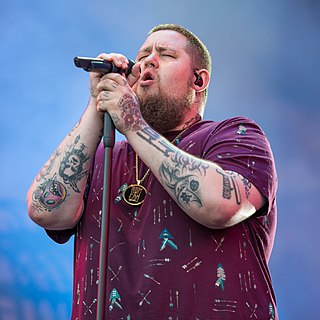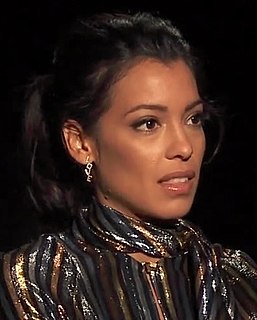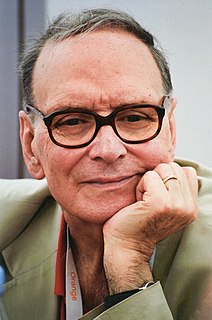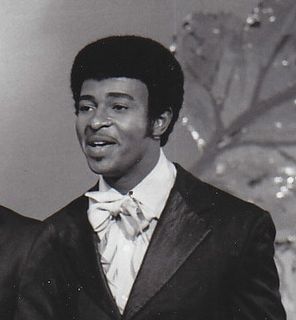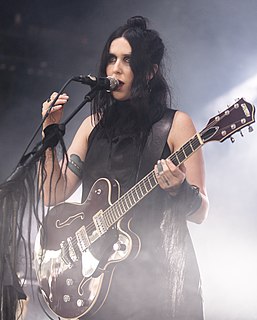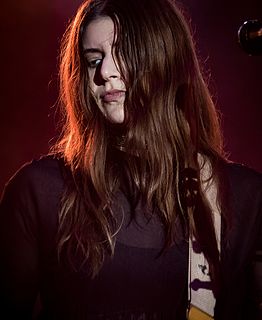A Quote by Henry Jackman
Some people feel like you need to have a very specialized understanding of music to have the authority to talk about it. They are such good directors that it's perfectly possible to have conceptual and directorial and storytelling conversations about music without needing to know all the technical pieces.
Related Quotes
He shook his head. "Some people think that they like music, but they have no idea what it's really about. They're kindding themselves. Then there are people who feel strongly about music, but just aren't listening to the right stuff. They're misguided. And then there are people like me."
"People like you," I said. "What kind of people are those?"
"The kind who live for music and are constantly seeking it out, anywhere they can. Who can't imagine a life without it. They're enlightened."
I believe that the greatest music is storytelling anyway, in a heightened medium. So I write a lot of music, and I play a lot with my guitar, I still sing a lot, but now I'm more personal about it than public, in a way. I think there will be a time where I'd like to bring the singing back into some of my performances. It all depends if the material's right, if the story's right, if it's my kind of taste in music, as well. It means so much to me. We all know how affective music can be, I just want to make sure when I do it, I'm doing it because I actually feel it and I care about it.
I think there's just been this "thing" that's developed, this way that we have of talking about our music that alienates people. And I fall into that too! I learned that in graduate school. You just talk about your music in a specific way, and that separates people from you. But some composers like that. Schoenberg liked that. He wanted to feel that he was making music for an elite few. That's fine for him, but I want to set myself free from that sort of attitude.
Music making features real-time creation, real-time decisions and actions. It's basically improvisation, which is the stuff of everyday life. In the realm of discourse about music, improvisation is marginal, but in the realm of doing it, it's omnipresent. Strange distinction here: we're improvising all the time, but when we tend to talk about music, we tend to talk about objects that are fixed, like recordings, scores, pieces.
I always wanted to have a young female artist that would tell me the truth about life and not only talk about the good things or the things that were exciting or interesting but also talk about the things that people in general are skeptical to talk about- the bad things that do happen. A good 50% of our lives is things that are happening that we're not necessarily super thrilled about and I feel like that's missing from pop music a lot of the time so my main goal is to be truthful about everything and not just specific things.
I've become this voice for a millennial generation of feminism, which is awesome, but at the same time it's complicated. We all know I'm a girl, I'm a woman, but it's difficult to figure out how to talk about it and express how important it is without beating it with a hammer and having it be, "So you're a girl in music! So you're a girl in music!" Yes, I'm a girl in music - can we just talk about something else?

